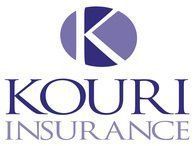Blog Layout
ACTUAL CASH VALUE..AGREED VALUE..REPLACEMENT COST..STATED AMOUNT.. WHY THESE TERMS MATTER!
Bryan Kouri • November 16, 2022
Four Different Valuations. Four Different Results. Which One is Best?
You bought insurance to protect you from a financial loss. But, do you know how your policy pays for your loss? Depending on the policy, you could be paid in four different ways. What are these valuations and how do they work?
Each State sets its own criteria so the descriptions below may differ based on location. Always consult your policy or agent for rules specific to your situation.
- Replacement Cost pays you for the full repair or replacement cost using new property of like kind and quality, up to your coverage limits, as long as you repair or replace the damaged item. In some cases, mostly home insurance, you will have an endorsement that will modify this clause to extend your dwelling coverage limit by 25%, 50%, or in some cases unlimited. The initial payment under this valuation pays for the actual cash value of your loss. In order to receive the full replacement or repair cost, you need to complete the repair or replacement. If you do not, then the policy only pays the actual cash value as that is your proper loss.
- Actual Cash Value is the default method for many policies. ACV is determined by removing depreciation from the replacement cost. The ideas behind actual cash value is that you are paid the value of the item at the time of loss. If the item is 10 years old, your payment will reflect the value of a similar 10 year old item.
- Agreed Value is determined at the time you set up your insurance. Agreed Value has become common with collectible items and recreational vehicles as it is generally the best way to insure these items. It is a more efficient process at the time of loss as the value has already been determined. There is no depreciation to factor as the value has already been agreed upon. Agreed Value does not automatically adjust for increases or decreases in value of the insured item so it is important to review and adjust if needed.
- Stated Value is the least understood valuation. It can be used for collectibles, vehicles, equipment, etc. Stated Amount sets a ceiling on the property value to determine the premium charge. Unlike agreed value, stated amount does not assure that you will be paid the amount stated. While a dollar amount is shown on the coverage schedule, these policies only agree to pay the lesser of the stated amount or the actual cash value. The amount paid could be anywhere from $0 to the amount listed on the coverage schedule.
CONTACT INFORMATION
Phone: 605-336-6303
Fax: 605-336-0050
Address: 6809 South Minnesota Avenue #201
Sioux Falls, SD, 57108
BUSINESS HOURS
- Mon - Thu
- -
- Friday
- -
- Sat - Sun
- Closed
Content, including images, displayed on this website is protected by copyright laws. Downloading, republication, retransmission or reproduction of content on this website is strictly prohibited. Terms of Use
| Privacy Policy











